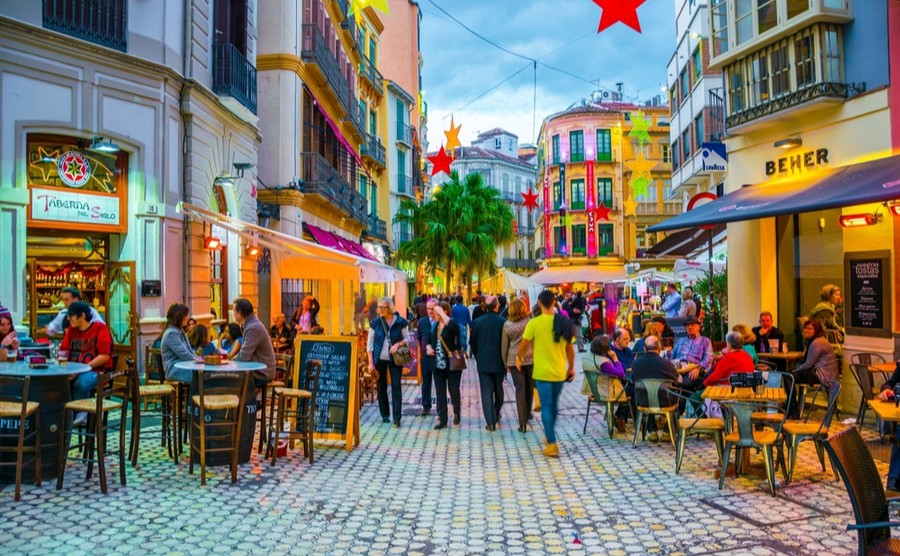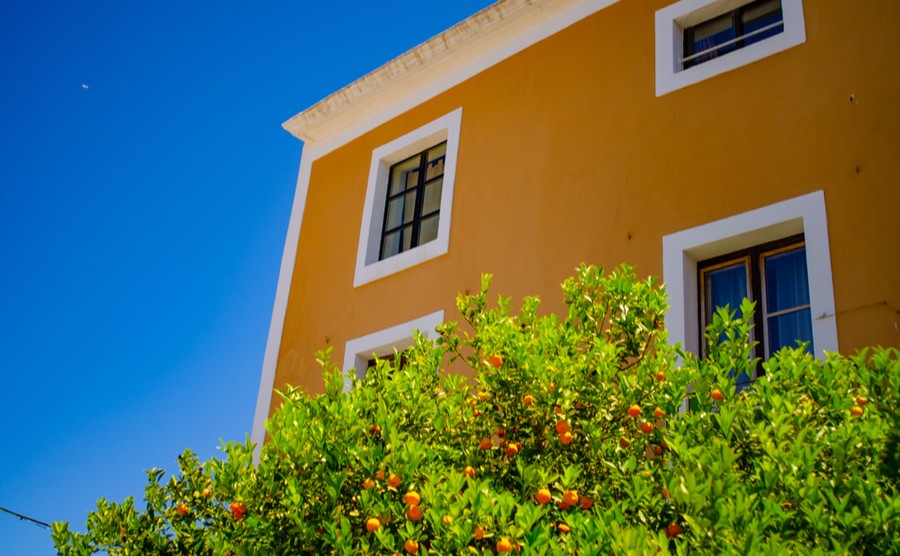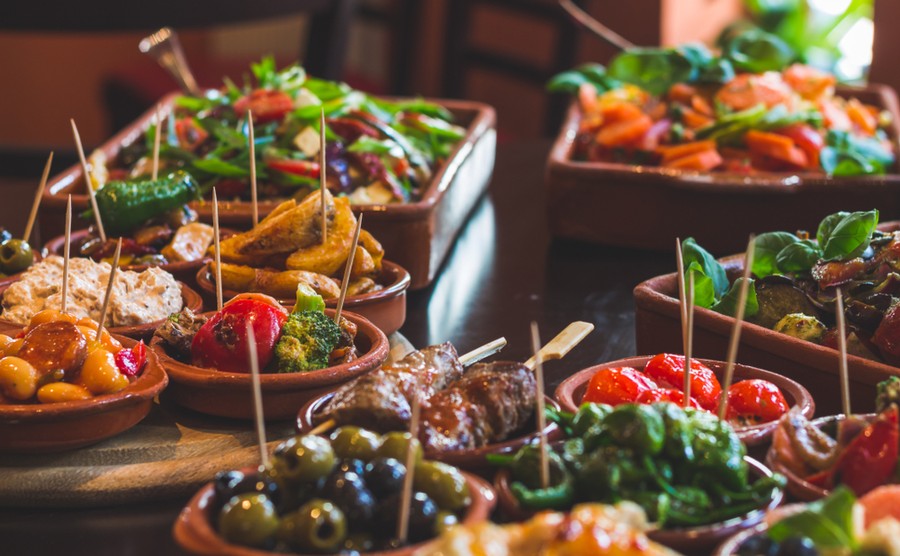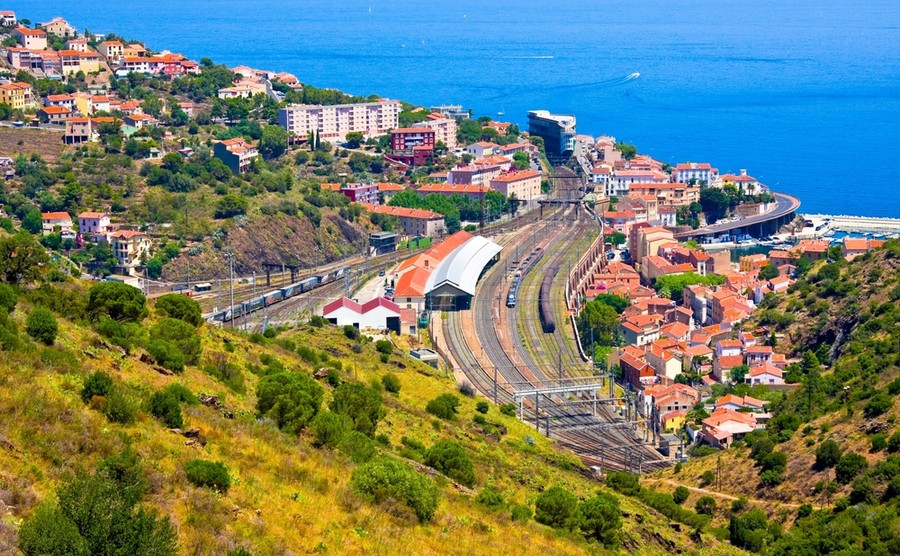So, you think you might like to live in Spain, but you’re not sure. It’s a big step. Maybe it would be easier not to move to Spain? On the other hand, it’s been your dream for a while… All of these thoughts went through the mind of our writer in Spain, but she went anyway. Fifteen years later, why does Sally think you should join her there?
Family and friends sometimes ask me why I have stayed in Spain for so long. After all, I’ve also enjoyed life in France, Italy and California.
Spain Property Guides can put you in touch with the very best lawyers, estate agents and international payments specialists in Spain, for total peace of mind. Get in touch with your Golden Three here.
The short answer is that Spain is my home and I wouldn’t want to be anywhere else. For the longer answer, I have divided the appeal of life in this wonderful country into six specific areas.
Lightness in the air
You feel it as soon as you cross the border from France. It’s intangible but it is there. A sense of feeling good, an adventure awaiting. Arriving by plane isn’t quite the same as airports are a world of their own but once out on the road, with palm trees swaying in the breeze and the odd medieval ruin in the distance, you feel it.
Heading into town for a drink, people around you are happily chattering, enjoying a beer or a coffee, laughing, loving each other’s company. Sometimes it gets a bit too noisy but that gives us a feeling of being alive.

Aaaah, that first drink and tapas in a Spanish bar when you arrive! (trabantos / Shutterstock.com)
Spain’s music festivals are just wonderful. Live music is very important here and has been, to some extent, continuing throughout the pandemic. Whether your thing is jazz, classical, rock or blues, sitting outside in the evening air and making music together, is the essence of Spain.
The climate
Well yes, the climate has a lot to do with why people come in the first place and then choose to stay. It must be said though, that Spain is a large country and the climate varies considerably from north to south and east to west.
The Costas are where most foreigners decide to live because here the weather is wonderful overall with over 300 days of sunshine, some rain and the occasional heavy storm. There are micro climates too, where the weather is even better. It is generally warmer the further south you go but for those who want the seasons, the north-east coast is perfect.

Winter sunshine in Ibiza
Spain is fortunate in having some wonderful mountain ranges, the Pyrenees and the Sierra Nevada, to name but two. Of course, the climate is not the same as on the coast but it suits those who don’t enjoy baking hot summers. The mountains have their own beauty even shrouded in the early morning mists.
Between the mountains and the sea are the fertile plains where olive and almond groves span out for miles, vineyards stretch as far as the eye can see and crops of exotic fruits permeate the air. Spring is wonderful as the fruit trees come into blossom and you gaze upon a sea of white and pink.
In the west, Galicia is as green as Ireland, hilly and mostly well above sea level. Extremadura which borders Portugal is a little like Tuscany, underpopulated and offers very warm summers and mild winters.
The extreme south, on the Costa de La Luz, it gets windy but the upside is it is a haven for surfers. Cádiz has a very comfortable climate, with an average temperature of 15º in January and 28º in August.
If you’re preparing to come over to Spain to look at properties, make sure you know what to look for by reading our free guide, Your Viewing Trip.
Let’s not forget the two principal cities, Madrid and Barcelona. Madrid enjoys the extremes, cold winters and hot summers, but the air is generally dry and so the low and high temperatures are bearable.
Barcelona is warmer but more humid, especially in the summer. This is because it is by the sea and the sea winds bring moisture. The winters are mild and summers hot.
Cuisine
Spanish cuisine is the art of invention. Interestingly, the ingredients used throughout the country are much the same but each region has a different way of cooking them. That’s what makes Spanish gastronomy so diverse.
Tapas are the best known Spanish fare but they differ widely from pinchos (tiny portions usually served on bread and held together with a cocktail stick) which are the speciality of the Basque Country, Navarre and Rioja to tapas as seen in Andalusia which are small dishes of fried fish, salmorejo (a gazpacho type of soup), spinach with chickpeas and chicharrones (thinly sliced crispy pork and rind served with lemon juice and salt). These you will find in every bar.

Tapas are served!
High level Spanish cuisine is amongst the best in the world. El Celler de Roca Can in Girona has been named the best in the world, though some years it is the second or third best according to the pundits. Throughout Spain you will find one-, two- and three-Michelin star restaurants serving innovative Spanish plates.
For me though, the small unassuming local restaurants where you can have a menú del día (three-course lunch menu) for around €12 washed down with a local wine, can’t be beaten. This is where you will find truly local food.
The people
I moved here with my husband in 2006, but things didn’t quite work out as we anticipated and we separated. However we are both still living here in Spain, about 30 minutes’ drive apart.
It’s a country where you can be single quite happily. The Spanish are friendly souls, welcoming to foreigners. They have a great sense of humour and make the best of their lives even in times of stress. The Spanish work to live; not the other way round.
Contrary to some people’s opinion, they work hard and long hours, often arriving home late at night. Shopkeepers are an example: they have a split day, working from 10am to 1.30pm and then again from 5pm to 8, 9 or 10pm, according to the region.
Make sure you are fully aware of what you are buying by speaking to our recommended Spanish property surveyor today – they can organise a building survey or valuation of your property.
However, they make the most of their downtime and the bars will be full of people unwinding after work and before they go home for dinner, which will be late at maybe 10pm or 11pm.
The Spanish are very family orientated, including the older generation and the very young in practically every event. The Spanish care for their old people and take on the responsibility of looking after them.
Certainly in the larger cities and towns and along the coast, people from other countries are made to feel accepted. People are helpful and will go a long way to find your destination on a map for example or might even take you there.
As neighbours they are pretty good. If there is an argument it will probably be due to noise or dogs.
The Spanish have dogs. They are not always well looked after, unfortunately, and often left to fend for themselves in the daytime. Other dog owners, especially with small breeds, nurture them like babies and will carry them around everywhere in handbags or shopping baskets. Such a contrast!
Language
Spanish is amongst the easiest languages to learn. That doesn’t mean you will speak it particularly well but a good basic knowledge will get through many doors. It really pays to learn it and socially it is a necessity if you want to assimilate into your community.
Pronunciation differs between regions and some have their own language which is used in parallel to Castilian. The Basque Country, Catalonia, Galicia, Valencian Community all have their respective languages.
If you should decide to move to any of these regions, it would be useful to learn simple phrases as you will be seriously appreciated for making the effort. Menus are often written solely in the local language, so at least try to learn the dishes in say, Basque or Catalan.
The Spanish, particularly the younger generations want to practice their English. You will want to practise your Spanish. Let them speak, they will appreciate that you might correct them and help them to improve.
Intercambios are informal language exchange meetings. You get together in a café or go for a walk, one to one and spend 30 minutes speaking English and 30 minutes speaking Spanish, chatting about family, friends, the weather, music, etc. Stay away from politics or religion!
It’s a great way to improve your Spanish and to slowly find your way into Spanish society. Highly recommended.
Internal and international travel
Spain has one of the best road networks in Europe. Apart from the cities where traffic builds up and you can face long queues, travelling across Spain is a delight. Excellent roads, motorways, autovias (two-lane toll free roads), usually well maintained and a trip from say, Barcelona to Málaga is a pleasure.
The trains are similarly pretty good, especially the AVE, fast intercity trains but also the regional networks. The latter could do with some improvements but the trains run on time.
As of this year, new players are entering the field of fast intercity travel, so expect prices to come down. Having said that, compared to rail fares in the UK, train travel in Spain is inexpensive and there are special cards for the under 25s and over 60s which can reduce fares up to 40%.
Then there is the service from Barcelona to Paris and to Lille. It takes about the same time by train to the centre of Paris as it does by air – plus no hanging around for hours in an unfriendly airport. From Paris, take the Eurostar to London. Less hassle, more comfort.

Your arrival at the Spanish border
Internal air travel is popular too. There are numerous routes linking larger and smaller cities and often prices are competitive as they want to take custom from trains.
Spain has the best links to the rest of the world. Travel to Europe and the UK is possible from every airport, large or small whilst long distance flights are available from several major airports.
Ferries will take you from the mainland to the Balearic islands, with your car if you want. You can also travel to Italy and North Africa using this method.
The good life
For all the above reasons life here is really good but seriously, I mean really good.
Of course, there are niggles but that is true of wherever you live. In Spain, you might find the queues a nuisance, the bureaucracy is not always easy to negotiate, noise levels can sometimes be high and some things are just illogical.
But I have yet to experience a better way of life amongst generous, kind people and where I can afford to eat very well, to enjoy cultural events and to look out a blue sky most mornings.












